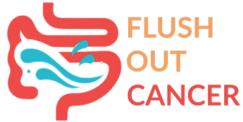
Colon Cancer Symptoms: The Subtle Signs You Shouldn’t Ignore
Hey there, friend. Let’s talk about something serious—but don’t worry, I’ll keep it light, informative, and just like a conversation over coffee. We need to have an honest chat about colon cancer symptoms because catching them early could literally save your life.
The Silent Intruder: What is Colon Cancer?
Imagine your colon as a well-oiled highway for digestion—food goes in, nutrients are absorbed, and waste gets the boot. Now, picture a sneaky construction crew setting up shop without permission. That’s colon cancer: abnormal cells growing where they shouldn’t, slowly causing a traffic jam of symptoms.
Colon cancer is the third most common cancer worldwide, and here’s the kicker: it doesn’t always come knocking with loud, obvious symptoms. In fact, it’s often called the silent killer because early signs can be mistaken for minor digestive issues. But make no mistake—your body sends signals, and your job is to pay attention.
Why Early Detection Matters
Catching colon cancer early boosts survival rates to 91%. But once it spreads? That number drops dramatically. So, let’s break down colon cancer symptoms, understand the warning signs, and figure out how to recognize early colon cancer symptoms before it’s too late. Understanding the early signs of colon cancer can be the difference between simple treatment and a complex journey.
Colon Cancer Symptoms: The Sneaky Warning Signs You Shouldn’t Ignore
Colon cancer isn’t the kind of guest that barges in loudly—it sneaks through the back door, rearranges the furniture, and hopes you don’t notice until it’s too late. That’s why understanding colon cancer symptoms early is key.
Early Symptoms of Colon Cancer: The Whispers Before the Shouts
At first, colon cancer can feel like a mild inconvenience—like your digestive system playing tricks on you. Here’s what to watch for:
- Changes in Bowel Habits – Are you suddenly running to the bathroom more often? Or struggling to go at all? Chronic constipation, diarrhea, or feeling like you never quite “finish” could be early indicators.
- Blood in the Stool – It’s not always bright red; sometimes it’s dark, almost black. Either way, seeing blood where it shouldn’t be is a major red flag.

- Persistent Gas and Bloating – If your stomach suddenly feels like a balloon at a kid’s birthday party every day, pay attention.
- Unexplained Fatigue – Feeling wiped out for no reason? Colon cancer can cause internal blood loss, leading to anemia and exhaustion.
- Cramping or Abdominal Pain – A dull, persistent ache that won’t go away? It could be more than just indigestion.
When the Symptoms Get Louder: Late-Stage Warning Signs
If colon cancer progresses, the symptoms get more serious:
- Unintentional Weight Loss – Dropping pounds without trying? Your body might be fighting harder than you think.
- Persistent Feeling of Fullness – If every meal leaves you feeling stuffed after just a few bites, something could be pressing on your intestines.
- Narrow Stools – If your stool starts looking thinner than usual, it could mean a tumor is partially blocking your colon.
- Severe Abdominal Pain – Intense, consistent pain could signal advanced disease.
Symptoms That People Ignore (But Shouldn’t)
Colon cancer symptoms often disguise themselves as everyday annoyances. Here’s a breakdown of what people tend to dismiss—and why they shouldn’t:
🚩 “I just have a sensitive stomach.” → If you suddenly develop bloating, cramps, or discomfort that doesn’t improve, it’s worth checking out.
🚩 “It’s just hemorrhoids.” → Sure, hemorrhoids can cause blood in the stool, but recurrent blood, especially dark-colored stool, is a sign of concern.
🚩 “I’m just tired from work.” → Persistent fatigue that sticks around despite good sleep can be linked to anemia caused by slow internal bleeding.
🚩 “I probably ate something bad.” → Occasional digestive discomfort happens, but ongoing changes in bowel habits—especially alternating constipation and diarrhea—aren’t normal.Many of these symptoms can also be caused by non-cancerous conditions like IBS, hemorrhoids, or food intolerances, but here’s the deal: It’s always better to get checked out than to ignore the signs.
How to Recognize Early Colon Cancer Symptoms Before It’s Too Late
You wouldn’t ignore a check engine light on your car, right? Your body is way more important than your car, and it has warning lights too—colon cancer symptoms just happen to be a little more subtle. The good news? If you know what to look for, you can catch problems before they become serious.

The “Gut Feeling” That Could Save Your Life
Most people chalk up early colon cancer symptoms to stress, diet changes, or aging. But if something feels off, it’s time to listen to your gut—literally.
Here’s how to separate minor tummy troubles from potential colon cancer warning signs:
✅ A one-time stomachache? Probably nothing. But if you’re getting persistent bloating, cramping, or changes in bowel habits that last for weeks? 🚩 🚩 🚩
✅ Occasional constipation or diarrhea after a big meal? Normal. A constant pattern of alternating constipation and diarrhea? Not normal.
✅ Tired after a long day? Happens to all of us. Feeling exhausted all the time despite sleeping well? 🚩 Your body could be losing blood internally.
✅ One random episode of blood in the stool? Could be hemorrhoids. But blood in the stool more than once (especially if it’s dark or tarry)? Time to call the doctor.
The 2-Week Rule: When to See a Doctor
Doctors suggest following the two-week rule: If any of these symptoms stick around for more than 14 days, get checked. Colon cancer doesn’t announce itself with flashing neon signs, but your body does give hints. Ignoring them is like ignoring smoke before a fire.
Why “Waiting It Out” Could Cost You
Too many people assume colon cancer only affects older adults—but rates in younger adults are skyrocketing. Waiting until you’re “the right age” for screenings? Not a great plan. If something feels wrong, act now.
Tracking Symptoms: Keep a Log
If you’re experiencing multiple symptoms, start keeping a symptom journal. This helps your doctor spot patterns and determine whether further tests are needed. Track things like:
📌 Bowel habits (frequency, consistency, presence of blood)
📌 Pain levels (where, how often, and how intense)
📌 Energy levels (any unexplained fatigue?)
📌 Appetite and weight changes
Bringing a clear record of symptoms to your doctor can speed up diagnosis and improve accuracy. The more details you provide, the better they can assess the situation. You can also explore how symptoms can vary between men and women for more personalized insights.
Risk Factors & Prevention: Are You at Risk for Colon Cancer?
Colon cancer doesn’t play favorites—it can show up whether you’re young or old, fit or not. But some people have higher odds of developing it due to lifestyle choices, family history, or medical conditions. The good news? Many risk factors are within your control.
Who’s Most at Risk?
- Age 45+ – Colon cancer used to be a “later in life” disease, but cases in younger adults are rising fast. That’s why screening guidelines now recommend starting at 45 instead of 50.
- Family History – If a parent, sibling, or close relative has had colon cancer, your risk doubles. Some families carry genetic mutations (like Lynch syndrome) that increase risk.
- Inflammatory Bowel Disease (IBD) – Conditions like Crohn’s or ulcerative colitis cause long-term inflammation, which increases cancer risk.
- Obesity & Sedentary Lifestyle – Extra weight and lack of exercise aren’t just bad for your heart—they also fuel colon cancer risk.
- Diet High in Processed Meats & Low in Fiber – Bacon lovers, brace yourselves. Studies link high consumption of red and processed meats (think bacon, hot dogs, and deli meats) to increased colon cancer risk. Meanwhile, a diet rich in fiber (veggies, whole grains, and legumes) can help protect your gut.
- Smoking & Heavy Alcohol Use – Your colon isn’t a fan of cigarettes and booze. Both have been linked to an increased risk.

Why Diet Plays a Huge Role in Colon Cancer Risk
Your gut is home to trillions of bacteria—some that help protect you and others that can increase inflammation and cancer risk. A low-fiber, high-fat, and processed-food-heavy diet can disrupt this balance, making your colon more vulnerable to cancerous changes.
What helps?
✅ Fiber-Rich Foods – Think whole grains, legumes, fruits, and vegetables. Fiber helps move things along and reduces exposure to harmful toxins.
✅ Healthy Fats – Omega-3s (found in salmon, flaxseeds, and walnuts) help reduce inflammation.
✅ Probiotics – Foods like yogurt, kefir, and sauerkraut support gut health by encouraging good bacteria.
✅ Limiting Red & Processed Meats – If you eat steak and bacon daily, consider cutting back. Try plant-based alternatives a few times a week.
To go deeper, check out colon cancer prevention strategies that combine nutrition, movement, and awareness
How to Lower Your Risk (Yes, You Can Do Something About It!)
You’re not powerless against colon cancer. Small, everyday choices can help stack the odds in your favor:
✅ Eat More Fiber: Swap white bread for whole grain, snack on nuts, and load up on veggies. Your colon will thank you.
✅ Limit Red & Processed Meats: No, you don’t have to quit bacon entirely (phew!), but cutting back is a smart move.
✅ Move Your Body: Even 30 minutes of walking a day can lower your risk.
✅ Stop Smoking & Reduce Alcohol Consumption: Your gut—and the rest of your body—will benefit big time.
✅ Know Your Family History: If colon cancer runs in your family, talk to your doctor about early screening options.
Small Steps, Big Impact
Colon cancer isn’t just about genetics—it’s also about choices. The more you know, the more power you have to protect yourself.

Screening & Diagnosis: How Do Doctors Detect Colon Cancer?
So, let’s say you’ve noticed some colon cancer symptoms, or maybe you just want to be proactive. What’s next? It’s time to talk about screening and diagnosis—because let’s be honest, waiting around and hoping your gut issues magically disappear isn’t a strategy.
Colon Cancer Screening: Who Needs It & When?
Think of colon cancer screening like a smoke alarm—it’s better to catch a problem before it turns into a full-blown fire. Here’s when you should get screened:
- Age 45+ (or earlier if you’re high-risk) – The American Cancer Society now recommends routine screening starting at 45 due to rising cases in younger adults.
- Family history of colon cancer? You may need screening as early as 40 (or 10 years earlier than your relative’s diagnosis).
- Persistent Symptoms? Don’t wait. If you have ongoing issues like blood in the stool, unexplained weight loss, or changes in bowel habits, talk to your doctor ASAP.
Types of Colon Cancer Screening Tests
Not all tests require a full-blown colonoscopy (a.k.a. “The Big One”)—there are multiple ways to screen for colon cancer:
1️⃣ Colonoscopy (The Gold Standard) – A doctor uses a tiny camera to check for polyps or cancer in your colon. If they find anything suspicious, they can remove it on the spot.
2️⃣ Fecal Immunochemical Test (FIT) or Guaiac-Based Fecal Occult Blood Test (gFOBT) – At-home stool tests that detect hidden blood in your stool, a possible sign of colon cancer.
3️⃣ Stool DNA Test (Cologuard) – This at-home test detects blood and DNA mutations linked to colon cancer. If positive, a colonoscopy is needed.
4️⃣ CT Colonography (“Virtual Colonoscopy”) – A less invasive scan that uses imaging to detect abnormalities in the colon.
Colonoscopy Prep: The Part Everyone Fears
Let’s be real—the idea of drinking a gallon of colon-cleansing liquid sounds awful. But modern prep solutions have improved, and you can now drink smaller amounts of prep fluid or split doses to make it easier. The actual procedure? You’ll likely sleep through it!
What Happens If Something Looks Suspicious?
If a screening test raises red flags, the next step is a biopsy—where doctors take a small tissue sample to check for cancer cells. Not all polyps turn into cancer, but identifying and removing them early can prevent problems down the line.
Why Screenings Save Lives
More than 90% of colon cancers start as polyps, which can be removed before they become dangerous. Yet, nearly 1 in 3 adults who should be screened aren’t. That’s a problem.
If you’ve been putting off that screening, consider this your friendly nudge to make that appointment—because when it comes to colon cancer warning signs, early detection is everything.
Living With Colon Cancer: What Comes Next After Diagnosis?
Alright, so let’s say the unthinkable happens—you or someone you love gets diagnosed with colon cancer. First, take a deep breath. A diagnosis isn’t a death sentence. Medicine has come a long way, and treatment options have never been better. The key is knowing what to expect and taking it one step at a time.
Understanding Colon Cancer Stages
Colon cancer is categorized into five stages (0 to IV), which determine treatment options and prognosis. The earlier it’s detected, the better the chances of successful treatment. Here’s a quick breakdown:
- Stage 0 (Carcinoma in situ): Cancer is only in the inner lining of the colon. Treatment: Polyp removal (no chemo needed!).
- Stage I: Cancer has grown into the colon wall but hasn’t spread. Treatment: Surgery.
- Stage II: Cancer has spread deeper into the colon but not to lymph nodes. Treatment: Surgery, sometimes chemotherapy.
- Stage III: Cancer has reached nearby lymph nodes but not distant organs. Treatment: Surgery + chemotherapy.
- Stage IV: Cancer has spread to distant organs (like the liver or lungs). Treatment: Chemotherapy, targeted therapy, sometimes surgery.
Early detection improves survival rates, making screenings essential for catching colon cancer before it advances.

Colon Cancer Treatment Options
Treatment depends on the stage, but most patients go through one or more of these:
✅ Surgery – The first line of defense, often removing affected sections of the colon.
✅ Chemotherapy – Used to kill any remaining cancer cells, especially for advanced stages.
✅ Radiation Therapy – Less common but used when cancer is aggressive.
✅ Targeted Therapy & Immunotherapy – Newer treatments designed to attack specific cancer cells.
Learn more about the latest advances in colon cancer treatment options that could improve outcomes at every stage.
Navigating Life During & After Treatment
A colon cancer diagnosis turns life upside down, but there’s hope. Many patients go on to live full, happy lives after treatment. Here’s what can help:
- Support Groups: Whether online or in person, connecting with others who understand can make a huge difference.
- Dietary Changes: Your digestive system will need extra care—your doctor might suggest high-fiber foods and probiotics to keep things running smoothly.
- Exercise & Mental Health: Physical activity, even light walking, can help recovery, while counseling or meditation can ease anxiety.
- Regular Screenings: If you’ve had colon cancer once, staying on top of follow-up check-ups is key to preventing recurrence.
Financial & Emotional Challenges: The Part No One Talks About
- Treatment Costs – Colon cancer treatment isn’t cheap, but there are financial assistance programs and insurance options that can help cover costs.
- Emotional Toll – Anxiety, depression, and even PTSD are common after a cancer diagnosis. Seeking therapy or talking to a counselor can be life-changing. In fact, research suggests that how emotional health affects cancer progression is more powerful than many people realize.
Survival Rates & Hope for the Future
When caught early, the 5-year survival rate is over 90%. Even in later stages, new treatments are helping patients live longer, healthier lives. Colon cancer is beatable—but only if it’s caught in time.

Frequently Asked Questions About Colon Cancer Symptoms
You’ve got questions—we’ve got answers. Colon cancer is one of those topics that makes people uneasy, but knowledge is power. Here are some of the most common questions people ask about colon cancer symptoms and what they really mean.
What are the warning signs of colon cancer?
Colon cancer doesn’t always start with dramatic symptoms, but here are the biggest red flags:
- Changes in bowel habits (constipation, diarrhea, or feeling like you can’t empty your bowels)
- Blood in the stool (bright red or dark, tarry stools)
- Unexplained weight loss
- Persistent cramping or bloating
- Fatigue and weakness
If any of these symptoms last for more than two weeks, it’s time to see a doctor.
How to recognize early colon cancer symptoms?
Early colon cancer symptoms are easy to mistake for minor digestive issues. Here’s how to tell the difference:
- A one-time stomachache after a big meal? Not a big deal.
- Persistent, unexplained cramping? 🚩 Time to get checked.
- Feeling tired after a long day? Normal.
- Chronic fatigue despite sleeping well? 🚩 Could be a sign of internal bleeding.
- A little constipation now and then? Happens to everyone.
- Ongoing constipation mixed with diarrhea? 🚩 Not normal—talk to your doctor.
At what age should I start getting screened for colon cancer?
The recommended screening age is 45 for most people. If you have a family history of colon cancer, you might need to start even earlier—around 40 or younger.
Does colon cancer only affect older adults?
Nope! Colon cancer cases are rising in younger adults. If you have symptoms—no matter your age—don’t ignore them.
What should I do if I notice symptoms?
Step 1: Don’t panic. Symptoms don’t always mean cancer, but they do mean you should check in with a doctor. The sooner you know what’s going on, the better your options.
Taking Charge of Your Health
If you’ve made it this far, you now know more about colon cancer symptoms than most people do—and that’s a good thing. The key takeaway? Colon cancer is preventable, treatable, and even beatable when caught early.
What You Can Do Right Now
💡 Listen to Your Body – If something feels off, don’t ignore it. Persistent changes in digestion, unexplained fatigue, or blood in the stool are not normal—so don’t brush them off.
💡 Follow the 2-Week Rule – Any symptom that lasts two weeks or longer deserves a conversation with your doctor.
💡 Get Screened – Colon cancer doesn’t always show symptoms early, which is why routine screening is a literal lifesaver.
💡 Make Small Lifestyle Changes – Eat more fiber, move your body, and limit processed meats. Small steps can make a big difference.
💡 Spread Awareness – If this article taught you something new, share it. Colon cancer is a topic that too many people avoid—but talking about it can save lives.

Your Health, Your Power
At the end of the day, your health is in your hands. The more you know, the more control you have. If you’ve got concerns, talk to a doctor. If you’re due for screening, book that appointment. And if you’ve learned something valuable today, pass it along—because when it comes to colon cancer warning signs, awareness is everything.
Stay curious, stay informed, and most importantly—take care of yourself.
